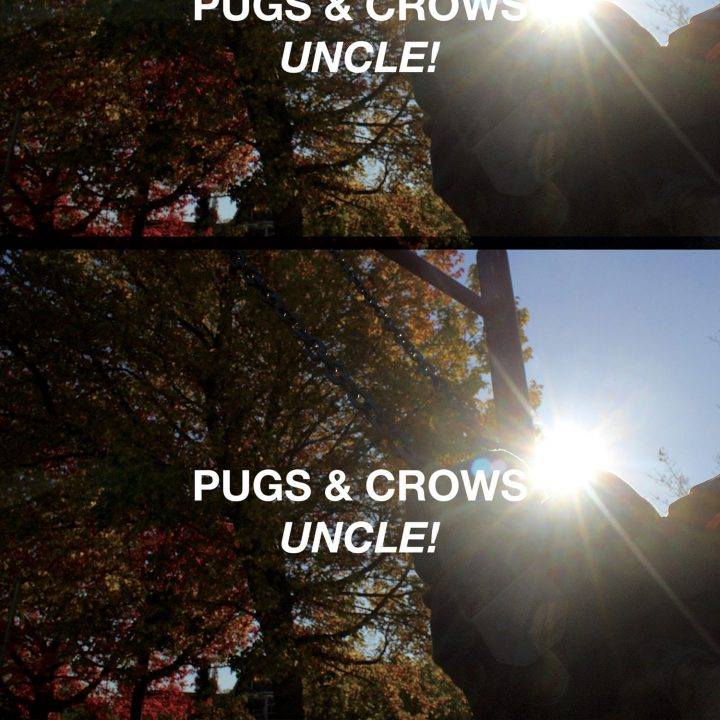The paper tacked to the door of the Western Front read plainly: “CONCERT TONIGHT, 9 PM.” There was no mention of the band — Pugs & Crows — or the occasion — the release of their fourth LP, Uncle!.
Despite the minimal signage, an animated party was underway upstairs. People young and old mingled in the performance space and adjacent hallways, supplicated by familiarity, expectation and a lively bar. With everyone gathered in the low-lit wood-panelled concert hall, I felt as if I’d stumbled upon the meeting of a secret society, or perhaps an extended family reunion. In reality, the Uncle! album release was something even more special.
Malcolm Jack opened the show with pieces from his upcoming album, Mirror Moon. A veteran of the Vancouver indie-psych scene, Jack masterfully created cavernous soundscapes with his acoustic guitar, pedal rig and earthy musings. His pieces were well received by the audience — whom he happily joined for a beer after his set. Meanwhile, a projector screen and floor lamps illuminated the stage as technicians prepared for the next performance.
After the break, the audience gathered patiently in their seats to experience Pugs & Crows’ collaborative creation. Joining the group for the first time was lead vocalist Marin Patenaude, whose combination of folkish whimsy and jazz club know-how serves to elevate the Pugs’ already virtuosic style. Patenaude’s effortless allure, along with the group’s transcendent synergy, made the album sound extraordinary. As they played through the album, multi-disciplinary artist Roxanne Nesbitt’s carefully crafted visuals flashed behind them — telephone wires wafted along in technicolour to jazz beats, then collapsed into distorted small town scenes and guitar licks. The full effect was a stunning immersion into the world of Uncle!
Band leader Cole Schmidt had introduced the album not only as a memorial to his own uncle, but to his mentor Ken Pickering as well, who listened to a copy of the album before he passed away this summer. Many members of the audience had been at a memorial service held for Pickering earlier in the day. Schmidt recalled Pickering’s wary assertion that “community” must not be a buzzword — a sentiment that was manifested as a lyric on “Not My Circus Not My Monkeys.” Nights like this one prove the lasting integrity of the term. Community is not a buzzword; community is having every seat filled, with the overflow standing crowded in the corners and doorways, mingled with collective memory and the earnest celebration of good art.


